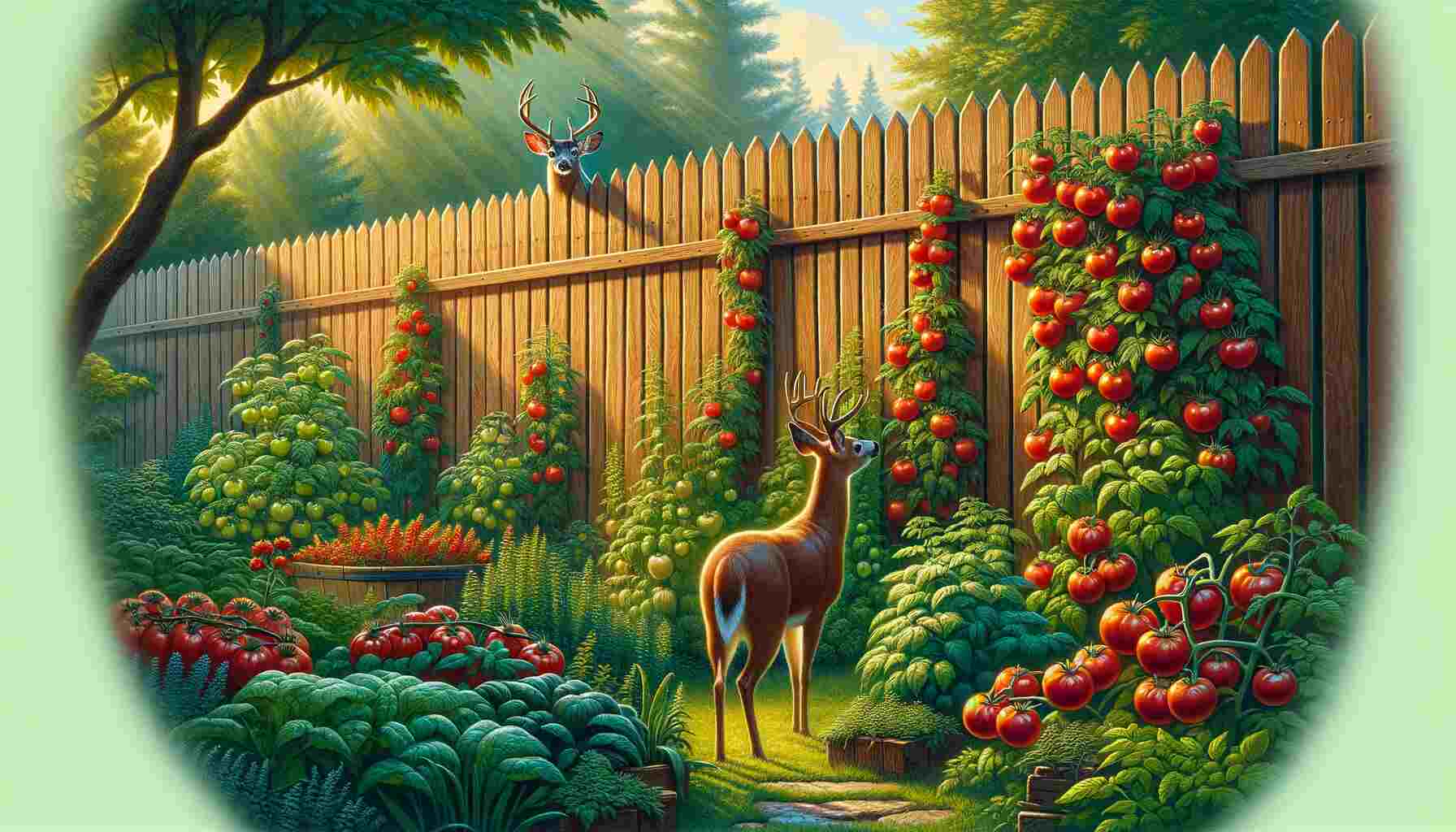Tomatoes are a beloved addition to many home gardens, prized for their flavor, versatility, and nutritional value. However, gardeners often face the challenge of protecting their tomato plants from various pests, including deer. Deer can wreak havoc on gardens, consuming a wide range of plants, including tomatoes.
Yes, deer eat tomatoes, especially when other food sources are scarce or when they develop a taste for them. Tomatoes and tomato plants can be irresistible to deer, particularly during the ripening stage when they are at their most appetizing.
Understanding Deer Behavior and Dietary Preferences
Deer Behavior
Deer are herbivores and opportunistic feeders, meaning they will consume a variety of plant materials based on availability and preference. They are crepuscular animals, most active during dawn and dusk, although they may also forage during the night in areas with minimal human activity.
Deer Dietary Preferences
While deer have a diverse diet, their preferences can vary depending on factors such as region, habitat, and seasonal availability of food. In general, deer are attracted to tender, succulent vegetation, including leaves, shoots, fruits, and vegetables. Tomatoes are among the crops that deer may target, particularly when other food sources are scarce or when young, tender plants are readily accessible.
Factors Influencing Deer Feeding Behavior
Several factors influence deer feeding behavior and their propensity to consume tomatoes.
- Seasonality: During periods of scarcity, such as late winter or early spring, deer may resort to eating a broader range of vegetation, including garden crops like tomatoes.
- Availability of Food: If natural food sources are limited or depleted due to environmental factors like drought or habitat loss, deer may venture into gardens in search of sustenance.
- Population Density: High deer populations can exert pressure on available food resources, prompting them to explore alternative sources of nutrition, including cultivated plants.
- Taste Preferences: Deer may develop preferences for certain plants based on taste, texture, or nutritional value, leading them to target specific crops like tomatoes.
Identifying Deer Damage to Tomato Plants
Signs of Deer Damage
Identifying deer damage to tomato plants is crucial for implementing effective prevention measures. Common signs of deer browsing include:
- Bite Marks: Deer typically leave behind jagged or torn edges on leaves and stems.
- Height of Damage: Deer tend to feed on vegetation at heights accessible to them, often leaving damage on lower branches and foliage.
- Trampled Areas: In addition to consuming plants, deer may trample garden beds while foraging, leaving behind flattened areas.
Distinguishing Deer Damage from Other Pests
It’s essential to distinguish deer damage from that caused by other garden pests, such as rabbits, groundhogs, or insects. Understanding the specific signs of deer browsing can help tailor your prevention strategies accordingly.
Effective Strategies for Deterring Deer from Your Garden
Physical Barriers
Fencing: Installing a sturdy fence around your garden is one of the most effective ways to deter deer. Opt for fences at least 8 feet tall to prevent deer from jumping over. Additionally, consider burying the fence several inches underground to discourage digging.
Repellents
- Scent-Based Repellents: Many commercial repellents utilize strong odors, such as garlic, rotten eggs, or predator urine, to deter deer. Apply these repellents to plants or perimeter areas according to the manufacturer’s instructions.
- Taste-Based Repellents: Some repellents are formulated to make plants taste unpleasant to deer without harming them. These products can be sprayed directly onto foliage and are often rain-resistant for long-lasting effectiveness.
Natural Deterrents
- Plants Deer Avoid: Integrate deer-resistant plants into your garden to help deter browsing. Examples include herbs like rosemary and lavender, as well as aromatic flowers like marigolds and daffodils.
- Motion-Activated Devices: Devices that emit sudden noises or flashes of light when triggered by motion can startle deer and discourage them from entering your garden.
Here’s the answer to a question you might be asking: Do Coffee Grounds Keep Deer Away from Plants
Protecting Tomato Plants Specifically
Companion Planting
Strongly Scented Plants: Companion planting aromatic herbs and flowers around your tomato plants can help mask their scent and deter deer. Consider planting garlic, onions, or mint alongside your tomatoes.
Netting and Covers
Protective Netting: Covering tomato plants with fine mesh netting can prevent deer from accessing them while still allowing sunlight and water to reach the plants. Be sure to secure the netting firmly to prevent deer from pushing through.
Elevated Planters
Raised Beds or Containers: Growing tomatoes in raised beds or containers elevated above ground level can make them less accessible to deer. Ensure that the containers are sturdy and securely positioned to prevent tipping over.
Conclusion
So, yes, deer do eat tomatoes. While they primarily feed on vegetation such as grasses, leaves, and shoots, deer are opportunistic herbivores known to consume a variety of plants, including garden crops like tomatoes. The succulent fruits of tomato plants are particularly enticing to deer, especially during periods of scarcity or when other food sources are limited.
While specific statistics on deer consumption of tomatoes may vary, according to the USDA, deer cause millions of dollars in crop damage annually.
We as gardeners often encounter challenges in protecting our garden including tomatoes and tomato plants from deer and it is necessary to implement deterrent strategies to minimize damage and preserve their harvest. I hope this can help you as much as it did for me.






